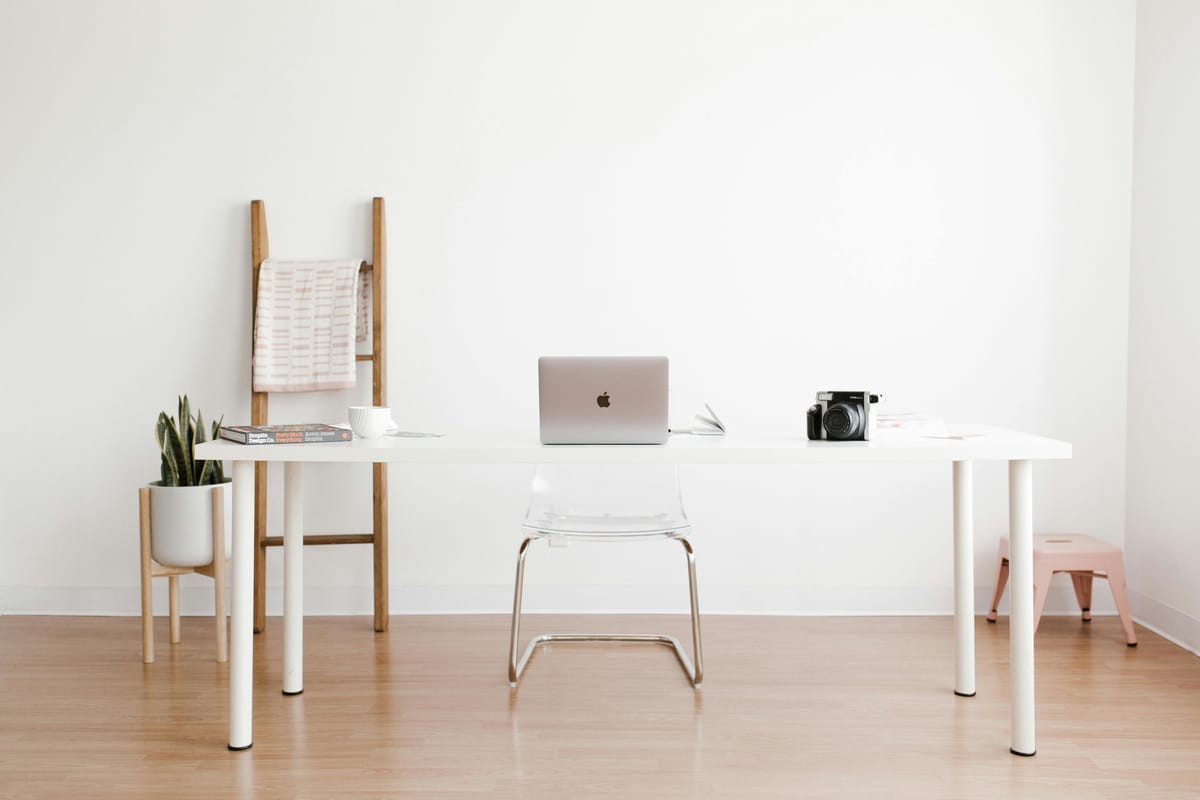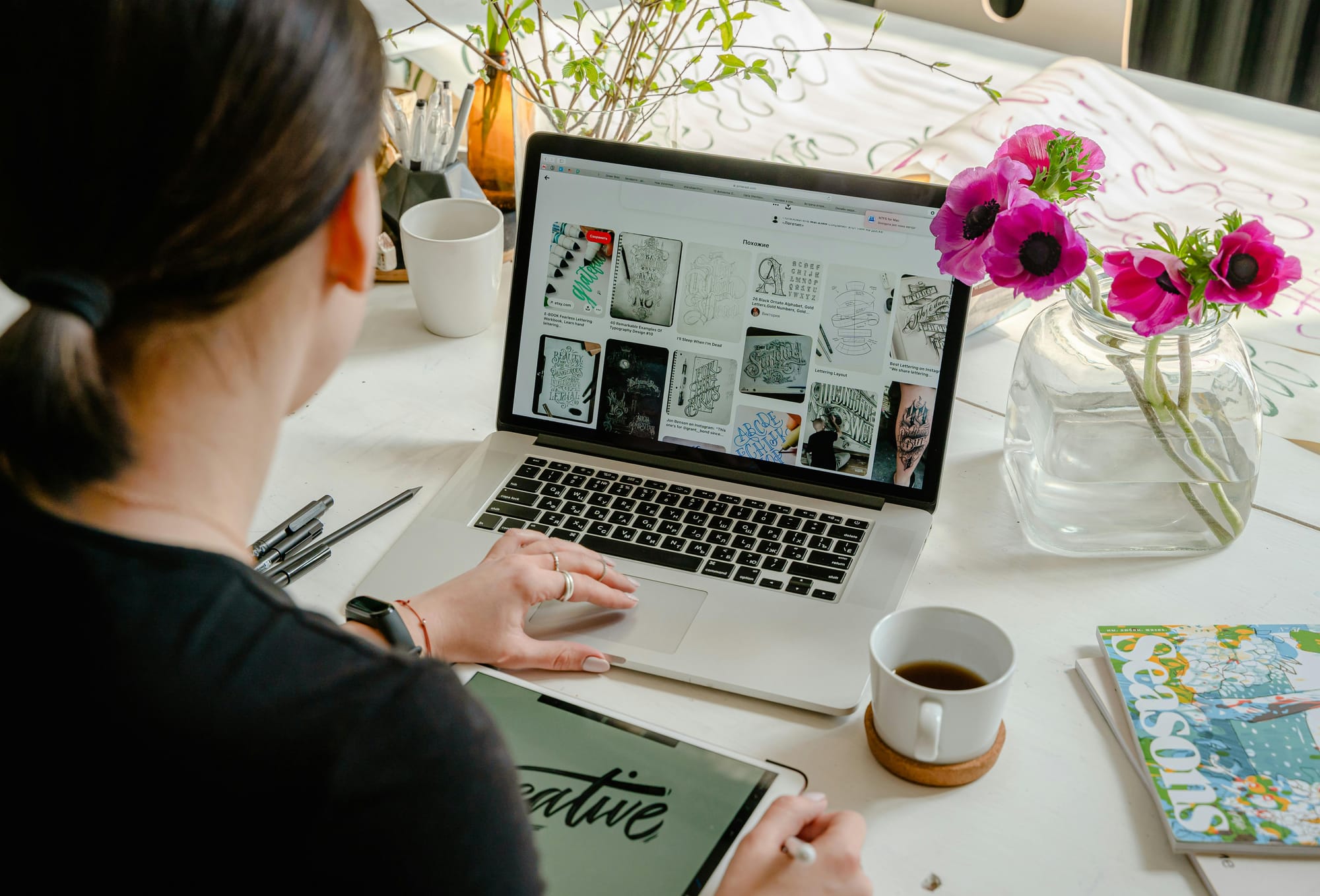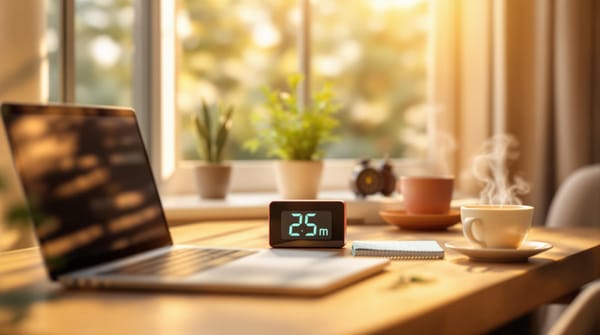The Ultimate Guide to Creating a Productive Study Space

Do you find yourself constantly procrastinating or losing focus when you sit down to work on assignments? Are you tired of falling asleep on your textbooks? Do you catch yourself getting distracted by everything from your phone to your pet goldfish? It's time to level up your study game, my friend!
Creating a productive study space can make a huge difference in your ability to stay motivated and get things done. In this post, we'll dive into all the juicy details of designing a study area that works for you.
Step 1: Choose Your Location Wisely (AKA Not Your Bed)
First things first, let's talk location. You might be tempted to just plop down on your bed with your laptop and call it a day, but trust me, that's a recipe for disaster. Your bed is for sleeping, not studying!
Ideally, you want a spot that's quiet, well-lit, and separate from your relaxation or sleeping areas. This helps your brain associate the space with work and focus, rather than leisure or rest. Bonus points if you can set up near a window for some natural light. Studies have shown that daylight can boost your mood and productivity, so say goodbye to those afternoon slumps. Plus, it just feels nice to have a view while you work!
If you're short on space, don't worry! Even a tiny corner of your room or a small desk in the living room can work wonders. The key is to create a consistent spot that your brain recognizes as your work zone.
Step 2: Invest in the Right Gear
Now that you've got your location locked down, it's time to talk equipment. And no, I'm not talking about PS5 (although that would be pretty sweet). I'm talking about essential equipment that can make a big difference in your study sessions. While you don't need to break the bank on fancy one, there are a few key pieces that are worth investing in:
- Comfy chair: You're going to be spending a lot of quality time with this baby, so make sure it supports your back and doesn't leave you feeling like a pretzel. If you can, an adjustable ergonomic chair is the way to go to allow you to sit at the proper height for your desk.
- Sturdy desk: Speaking of desks, get one that's large enough to hold your computer, books, papers, and snacks (because let's be real, studying requires sustenance). And if you're tight on space, a wall-mounted desk or a small side table that doubles as a workspace can be a lifesaver.
- Good lighting: In addition to natural sunlight, make sure you have a good desk lamp or overhead light to keep your space well-lit and inviting. Avoid harsh fluorescent bulbs that can cause eye strain and headaches. No one wants to study in a cave.
- Headphones: If you live in a loud neighborhood or if you're dealing with noisy roommates, investing in a good pair of noise-cancelling headphones can be a game-changer. It can help block out distractions and create a focused bubble of concentration. Plus, tune in to your fave playlists!
The specific equipment you need will depend on your individual study style and requirements. But by focusing on these key areas, you can create a space that's comfortable, functional, and conducive to productivity.
Step 3: Declutter and Organize
Clutter is the enemy of productivity. When your space is a hot mess, it's hard to focus on anything other than the pile of laundry staring you down. That's why decluttering and organizing your study area is so important.
Start by getting rid of anything that doesn't belong in your workspace - old papers, empty coffee cups, that random sock that somehow ended up on your desk. Then, create a system for organizing your materials so that everything has a designated place - file folders, binders, or desk organizers to keep your papers in check.
The goal is to create a space where you can quickly and easily find what you need without having to dig through a mountain of junk. Plus, taking a few minutes to tidy up at the end of each study sesh will help you maintain a clutter-free zone that's always ready for action.
Step 4: Add Some Personality (But Not Too Much)

Sure, your study space should be functional, but that doesn't mean it has to be a snoozefest! Adding a few personal touches can make the space feel more inviting and inspiring. Think motivational quotes, artwork that makes you smile, or pics of your fave people (or photo card of your K-pop idols, we don't judge).
Just... be careful not to go too crazy with the decor. Too many knick-knacks can be distracting and make it hard to focus. Stick to a few key pieces that bring you joy without turning your desk into a circus.
Step 5: Eliminate Digital Distractions (Put Your Phone Down)
In today's digital age, it's all too easy to get sidetracked by notifications, social media, and endless Reddit rabbit holes. But if you want to create a truly productive study space, you've got to eliminate those digital distractions.
Start by silencing your notifications or even putting your phone in another room during study time. Out of sight, out of mind, right? If you're really struggling to resist the siren call of social media, try using app or website blockers to temporarily cut yourself off during study sessions.
And if you absolutely must check your phone, give yourself designated "digital break" times. Set a timer for 5-10 minutes every hour or so to scroll through Instagram or check your emails. That way, you can stay focused during work time and still get your meme fix.
Step 6: Make It a Habit
Creating a kick-ass study space is a great start, but to really see results, you've got to make studying in that space a regular thing. Consistency is key! This is where the principles of James Clear's Atomic Habits come in handy.
One key idea from the book is to make your desired behavior as easy and automatic as possible. Set a goal to study in your designated space for a certain amount of time each day, and prep your materials ahead of time so all you have to do is sit down and get to work.
Another helpful tip is to use visual cues to trigger your study habit. For example, keep your textbooks or laptop in a visible spot on your desk, so that every time you see them, you're reminded to study. Or set a daily alarm or calendar reminder to prompt you to head to your study space.
The more consistently you study in your productive space, the more your brain will associate that area with focus and work. Before you know it, just sitting down at your desk will flip the switch in your brain to work mode.
Bonus Tip: Invest in Productivity Apps to Streamline Your Studying
While creating a productive physical study space is important, having the right digital tools can also make a huge difference in your efficiency and focus like Intellecs.ai!
Intellecs.ai is an all-in-one AI-powered writing and research platform designed specifically for students and academics. With features like PDF Q&A, Ask AI with internet access, and a built-in AI writing assistant, Intellecs.ai streamlines the often messy and time-consuming process of researching and writing papers.
Rather than juggling multiple tabs, apps, and resources, you can keep everything organized in one central workspace. The AI tools help you quickly find the information you need from your sources, while the writing assistant can improve your drafts in just few clicks.
By combining a well-designed physical study space with a productivity-boosting tool like Intellecs.ai, you'll be amazed at how much more efficient and effective your study sessions can be.
My Personal Study Space Journey
Believe me, I know the struggle of trying to create a productive study space especially when working with limited resources. When I was living at my grandma's house, the thin walls and noisy neighbors made it nearly impossible to focus. I relied heavily on noise-cancelling earphones to block out distractions and create a sense of privacy.
And when the pandemic hit and everything went virtual, I had to get creative with my setup. I invested in a good pair of headphones with mic for online classes and carved out a little desk space in my bedroom. It wasn't much, but it made a big difference in my ability to stay on top of my work. I also made a point to keep my space clean and organized, even when the rest of my life felt chaotic.
Fast forward to senior year, when I was juggling a full-time remote job, classes, and a side hustle - I finally moved out on my own. And creating a productive workspace was a top priority. I made sure to choose a place with lots of natural light and set up my desk facing a big window.
I know that not everyone has the means to create their dream study space right away. But the key is to work with what you have and make small improvements over time. A little decluttering, some noise-cancelling headphones, or even a simple filing system can go a long way!
Conclusion
Alright, my studious friends, we've covered a lot of ground here. Creating a productive study space is all about setting yourself up for success. Remember, your study space doesn't have to be Pinterest-perfect. The most important thing is that it works for you and your unique needs and preferences. Don't be afraid to experiment and make adjustments until you find a setup that feels just right. With some effort and a lot of intentions, you can transform even the smallest corner into a productivity powerhouse!





